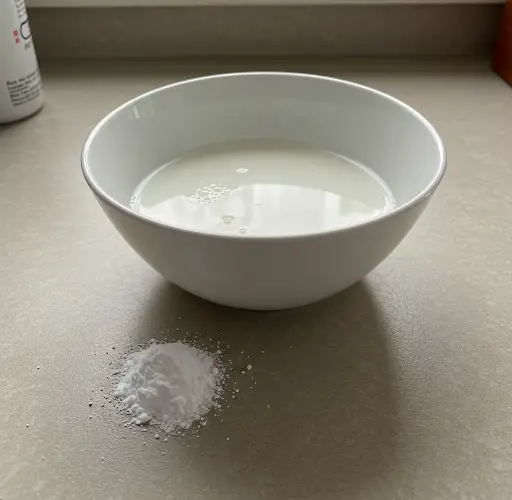The Strongest Defense for Your Garden Against Plant Diseases: Combat Blight and Powdery Mildew Naturally
Every gardening season, many of us face a frustrating and common enemy—plant diseases. These pesky invaders, like blight and powdery mildew, can wreak havoc on your precious cucumber seedlings, tomatoes, and other vegetables. They weaken plants, reduce yields, and can even kill your crops. But there’s no need to panic! Today, we’ll discuss a simple yet powerful remedy to help combat these diseases and keep your garden healthy and thriving throughout the season.
Understanding Blight and Powdery Mildew
Before we jump into the remedy, let’s first understand what these diseases are and how they affect your plants.
Blight is a fungal disease that thrives in warm, humid conditions. It usually begins with brown spots on leaves and a powdery coating underneath the foliage. As it progresses, it can cause the leaves to rot and damage the fruit, often leading to crop loss. Blight is notorious for its ability to spread quickly, especially in climates where moisture levels are high.
Powdery mildew, another fungal disease, affects a wide range of plants, from fruit trees to vegetables and ornamental plants. This disease presents itself as a white, powdery substance on the surfaces of leaves, stems, and even fruits. While it doesn’t always kill the plants outright, it can significantly reduce the quality of produce and hinder the plant’s overall growth.
Both diseases can leave gardeners frustrated, but there’s no need to resort to harsh chemical treatments. We have a natural, effective solution that can help you fight back and keep your garden in top shape.
The Natural Remedy: Milk and Baking Soda
The good news is that you likely already have two simple ingredients in your kitchen that can work wonders for your garden—milk and baking soda. These common household items are not only effective at fighting fungal infections, but they also provide essential nutrients that support plant growth. Here’s how you can use them to combat blight and powdery mildew:
Step 1: Prepare the Solution
Start by mixing one part of milk with ten parts of warm water. For example, if you use one cup of milk, mix it with 10 cups of warm water. Milk contains natural proteins and enzymes that can inhibit fungal growth. It also encourages the growth of beneficial microorganisms that help fight off fungal infections.
Once you’ve added the milk to the water, it’s time to enhance the mixture by adding baking soda. Baking soda (sodium bicarbonate) has the ability to alter the pH of the leaf surface, creating an environment that is unfavorable for fungi. This helps prevent the spread of diseases like blight and powdery mildew.
Step 2: Mix Thoroughly
To ensure that both ingredients are well blended, add one tablespoon of baking soda to your milk-water mixture. Stir the solution thoroughly to dissolve the baking soda completely. The goal is to create a uniform solution that can be easily applied to your plants.
Step 3: Apply the Solution
Once your solution is ready, it’s time to put it to work. Pour the mixture into a garden sprayer or spray bottle and apply it directly to your plants. Be sure to spray both the top and bottom of the leaves, as fungi often reside in these areas. The application of this solution will not only help fight off fungal diseases but also create an environment where beneficial microbes can flourish, strengthening your plants and boosting their resistance.
Step 4: Regular Treatment
For best results, apply this solution every 7-10 days, especially during the growing season when fungal diseases are most active. After a rainstorm, or during particularly humid conditions, it’s also a good idea to reapply the treatment. This ensures that your plants remain protected and healthy throughout the growing season.
Benefits of Milk and Baking Soda for Your Plants
Beyond their disease-fighting capabilities, both milk and baking soda offer additional benefits to your garden. Here are just a few of the advantages of using this natural remedy:
-
Nutrient Boost: Milk is rich in proteins, calcium, and potassium, while baking soda adds sodium, which can improve soil structure and plant resilience.
-
Supports Plant Growth: By promoting the health of beneficial microorganisms, this solution creates a balanced, thriving environment that helps plants absorb nutrients more effectively.
-
Eco-Friendly: Unlike many chemical treatments, this natural solution is completely safe for your plants, the environment, and beneficial insects. It’s also a much cheaper option than chemical fungicides.
In addition to fighting diseases, regular application of this solution helps strengthen your plants and improve overall yields.
Conclusion
If you’re dealing with blight or powdery mildew in your garden, there’s no need to turn to harmful chemicals. Milk and baking soda offer a simple, effective, and natural remedy that will help protect your plants, boost their growth, and keep your garden healthy. By following this method, you can create an environment where your plants thrive, free from the destructive effects of fungal diseases.
Try this natural solution the next time you see signs of blight or powdery mildew, and watch your garden flourish without relying on harsh chemicals. With just two ingredients—milk and baking soda—you can keep your plants safe, healthy, and productive all season long.



